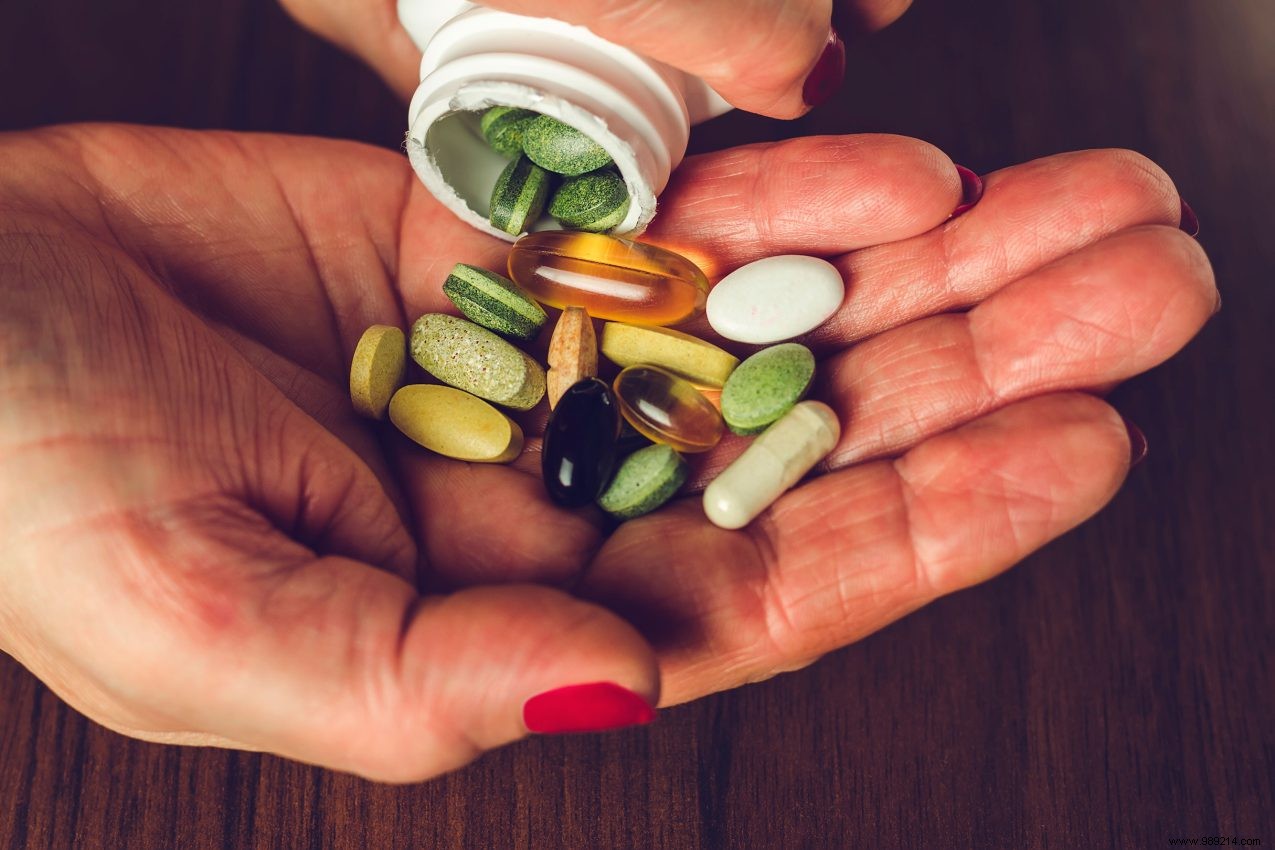
Do you suspect that you have a vitamin B deficiency? You can pay attention to this.
What happens to your body if you have a vitamin B deficiency? You can see B vitamins as the happy maker among vitamins. They give energy and ensure that you can take a beating. If you lack them, you will soon feel less comfortable in your own skin.
For example, vitamin B6 is needed for the production of neurotransmitters in the brain, including serotonin. If you don't get enough B6, you can become depressed and sleep less well. A B6 deficiency for a long time can cause anemia, nervous disorders and a reduced resistance.
Vitamin B1, also called thiamine, is the energy factory among the B vitamins. In addition, B1 helps in the proper functioning of the nerves. A lack of this makes you weak and lifeless. You can feel anxious and it has been linked to mood swings and depression.
A deficiency of vitamin B12 can also lead to unpleasant complaints, such as muscle cramps, extreme fatigue, painful spots in the mouth, palpitations, nausea, no appetite, tingling in hands and feet and ringing in the ears. For more information, please visit Stichtingb12shortage.nl.
In the Netherlands, a deficiency of B vitamins is not very common. There are certain risk groups. You can also suffer from a deficiency due to medication or if your body cannot absorb the vitamins properly. When a shortage of one particular B vitamin occurs, a shortage of other B vitamins often follows.
Read also: What types of vitamin B are there?
What are the risk groups for a vitamin B deficiency? Some people are more likely to be deficient in certain B vitamins. Supplements are sometimes recommended for these groups.
Heavy drinkers
By 'big drinking' is meant more than three glasses of alcohol per day for women, four for men. Alcohol reduces the absorption of vitamins. Processing the alcohol also means that your body uses much more vitamins. In addition, you may have the tendency to eat one-sided or neglect your diet. These factors together can lead to severe vitamin and mineral deficiencies. Alcoholics often have a deficiency of vitamins B1, B3 and B12.
Vegans If you don't get enough food with B vitamins, you run the risk of a deficiency. A deficiency of vitamin B12 is relatively common among vegans, because they do not use meat, fish, dairy products or eggs, which are important food sources for this vitamin.
Over-60s
If you are over sixty, your intestines absorb vitamins from food less well. The chance of a vitamin deficiency, including B6, B12 and folic acid, is then greater. In addition, the production of stomach acid can decrease in the elderly, so that vitamin B12 is less well absorbed.
And further The absorption of B12 is also prevented in gastric mucosal diseases and gastro-intestinal inflammations, such as Crohn's disease. And please note:taking gastric acid inhibitors for a long time also increases the risk.
If you suspect a vitamin deficiency, you can have blood drawn through your doctor to check.
Should I take supplements?
B vitamins always work together. In fact, if you get more of one B vitamin, you also need more of the other to maintain the balance. Precisely because the B vitamins work closely together, it makes little sense to take supplements with only one B vitamin. According to the Nutrition Center, supplements are usually not necessary at all if you eat a healthy and varied diet and do not belong to a risk group. Patricia Schutte of the Nutrition Center:'Some people think:I don't always eat healthy, so I take some vitamins and minerals just to be sure. But research shows that eating less healthy food mainly leads to too many calories and saturated fatty acids. And too little fiber. You can't undo that with a supplement.' In addition, eating fruits and vegetables reduces the risk of all kinds of diseases. The vitamins and minerals that you get from supplements do not have the same effect. If you still want to take a dietary supplement, choose one that does not exceed the recommended daily amount (RDA) per vitamin. Research has shown that taking too much vitamin B3, B6 and folic acid over a long period of time can be harmful to health (including numb skin, tingling or severe nerve pain).
Vitamin B complex
A supplement that contains all eight B vitamins is called vitamin B complex. Together, this group of vitamins ensures:
• The health of your skin, hair and eyes
• Good digestion
• A healthy nervous system
• Releasing energy
• An optimal oxygen supply to your muscles and brain
• Resistance to infections (better immune system)
• Increase your energy level and zest for life
• The production of new blood
• The prevention of wrinkles
• Maintain a healthy cholesterol level
• The production of anti-stress hormones